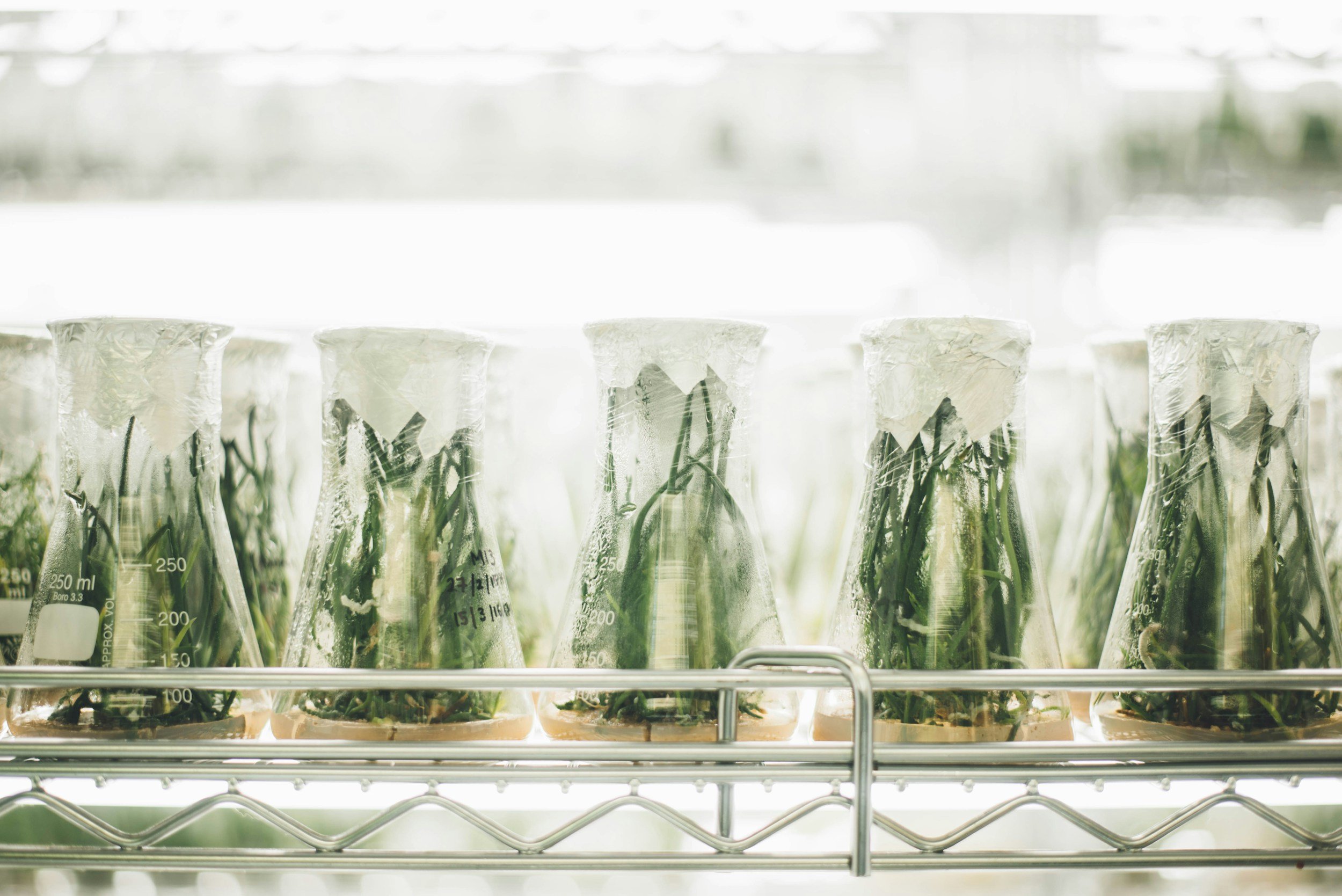Natural vs Synthetic Skincare
Natural vs Synthetic Skincare
Is natural skincare better?
In a previous article we attempted to clarify the misunderstandings regarding natural skincare.
As we’ve said before, everything is a chemical! The air we breathe is a mixture of chemicals and it keeps us alive. The same goes for H2O which is the water we drink. Still, “natural” skincare is increasingly trending.
But are “natural” substances inherently better? And what does “better” imply? Better performance? Safer? Better for the environment?
The fact that something is natural does not necessarily mean it is better. It can be, but we need to take into consideration different aspects of what we expect when we say better.
Performance
The performance of ingredients is measured through a combination of scientific research, clinical studies, and user feedback. The origin of an ingredient does not guarantee in any way enhanced efficacy. This becomes clear especially if you take into consideration naturally identical ingredients. You can synthetically produce an ingredient that you can also find in nature, and you wouldn’t be able to tell them apart just by looking at them.
Additionally, the properties of substances produced in the lab can be regulated with much more precision than that of substances that occur naturally. The lab-synthesized ingredients can be produced again and again with the exact same properties. The same cannot always be the case with naturally derived ingredients. Farming is complicated, which means that the quality and quantity of each batch of ingredients can fluctuate, a fact that can also affect their price.
Performance is not solely about being "natural" but about whether the product effectively addresses your specific skin concerns and feels comfortable on your skin. For example, some of the least processed ingredients are vegetable waxes and cold pressed oils. These ingredients tend to feel greasy on the skin which can be unpleasant for most people. If a product was not pleasant on your skin, would you use it or would you avoid it?
Safety
Safety is a huge chapter in skincare. There are strict guidelines about which ingredients and how much of each is allowed in cosmetic products.
As per all ingredients, regardless of their origin, the dose makes the poison. The mode of exposure is equally important. What's safe when applied topically to the skin may not be safe if ingested. This is why skincare products are formulated and tested for topical use and should not be ingested or used inappropriately.
The fact that an ingredient is of natural origin does not mean that it is safer compared to a synthetic one. For example, while natural essential oils are widely used either for their fragrant or beneficial properties, a lot of them are heavily packed with allergens. Contamination can also be an issue when it comes to natural ingredients. When acquiring certain ingredients from nature, there is a chance that they might be contaminated with things which shouldn’t be in your cosmetics, such as heavy metals. This means that sometimes, synthetic ingredients can be a better option. Anyway, most ingredients go through some kind of processing before they can be added to cosmetics.
A big part of safety in cosmetics is preservation. Preservatives are in your products for a reason. They ensure microbial safety, prolong the products’ shelf life and guarantee that the product you use will do what it is supposed to do. It is often believed that natural preservation systems are safer but usually natural preservatives are less effective than their synthetic counterparts. This means that to achieve the same preservation, natural preservatives are added in a higher amount. Preservatives in general can cause irritation or allergic reactions, so when natural preservatives are added in higher amounts, the probability to cause irritation is higher compared to a synthetic preservative added in lower amounts.
Sustainability wise, if the shelf life of a product is too short (either because it contains no preservatives or it is preserved poorly) and it expires before you use it all, isn’t this more wasteful?
Sustainability
Knowing the origin of an ingredient is not enough to let you know whether it is sustainable or not. It's a matter of the entire product life cycle, including ingredient sourcing, manufacturing processes, packaging, transportation, consumer habits and disposal.
Sustainability is quite complex. Knowing that an ingredient is natural does not answer the following questions. Is it ethically sourced? Is it biodegradable? Is its carbon footprint lower than that of its synthetic identical?
Sometimes chemically synthesized substances can be the more sustainable choice. For example, citric acid is a substance that is used in cosmetics but is also widely used in the food industry. Imagine the quantities we’re talking about and the land required to grow all these lemons. Is it more sustainable to cultivate all these lemons or synthesize citric acid in a lab? Actually most of the citric acid used today is not produced from fruit.
The production of a cosmetic product includes a lot of shipping especially when it comes to acquiring raw materials. Synthetically producing ingredients could help minimize the carbon footprint as the ingredients would be produced exactly where they’re needed.
So what do I choose?
The choice between natural cosmetics and synthetic cosmetics comes down to personal preference and individual needs. However, this decision should not be based on fear mongering but on knowledge. When something is not clear you can always ask the company about their policies.
An ingredient or a final product can be better if it performs better, if it is biodegradable, if it is ethically sourced and produced, if it has a low carbon footprint. And it is ok if all these criteria are not fulfilled altogether by one product. But natural is not an umbrella term that encompasses all these criteria. Safety is and always will be on the forefront. Synthetic or not, all ingredients are subject to regulations.
And remember, even if a product claims to be natural, it contains chemicals because everything is a chemical!


